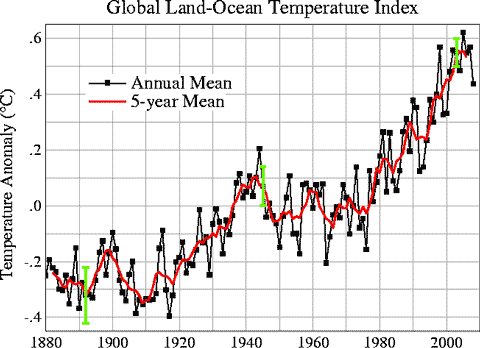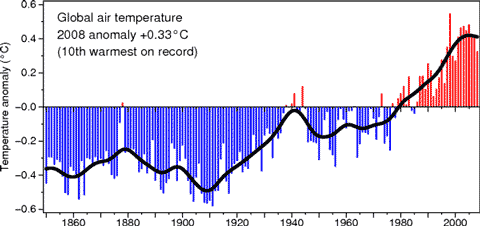The Australian twin to Wishart’s Air Con is Professor Ian Plimer’s Heaven and Earth: Global Warming, the Missing Science, published last month. According to Bob Carter (in all his oleaginous glory here) on Leighton Smith’s Newstalk ZB programme recently it’s “an excellent book”. Carter assures Smith that “the authoritative science is in Ian Plimer’s book”. Fortunately, to save Hot Topic the chore of wading through Plimer’s prose, The Australian (noted for a tendency to push crank arguments) has published a most interesting review of Plimer’s opus by Michael Ashley, a professor of astrophysics at the University of New South Wales. What does he make of Plimer’s “authoritative science”?
Perhaps we will find a stitch-by-stitch demolition of climate science in his book, as promised? No such luck. The arguments that Plimer advances in the 503 pages and 2311 footnotes in Heaven and Earth are nonsense. The book is largely a collection of contrarian ideas and conspiracy theories that are rife in the blogosphere. The writing is rambling and repetitive; the arguments flawed and illogical.
Just like Wishart then.
Plimer has done an enormous disservice to science, and the dedicated scientists who are trying to understand climate and the influence of humans, by publishing this book. It is not “merely” atmospheric scientists that would have to be wrong for Plimer to be right. It would require a rewriting of biology, geology, physics, oceanography, astronomy and statistics. Plimer’s book deserves to languish on the shelves along with similar pseudo-science such as the writings of Immanuel Velikovsky and Erich von Daniken.
[Hat tip: Deltoid]
See also; Prof Barry Brooke’s review of Plimer’s book.
[Belinda Carlisle]


 Time to revisit events at crank central. In the course of researching the NIPCC (at the
Time to revisit events at crank central. In the course of researching the NIPCC (at the 

 The government’s demolition of New Zealand’s climate policy is continuing apace. This week, as part of cost-cutting and restructuring at the Ministry for Environment, they have
The government’s demolition of New Zealand’s climate policy is continuing apace. This week, as part of cost-cutting and restructuring at the Ministry for Environment, they have